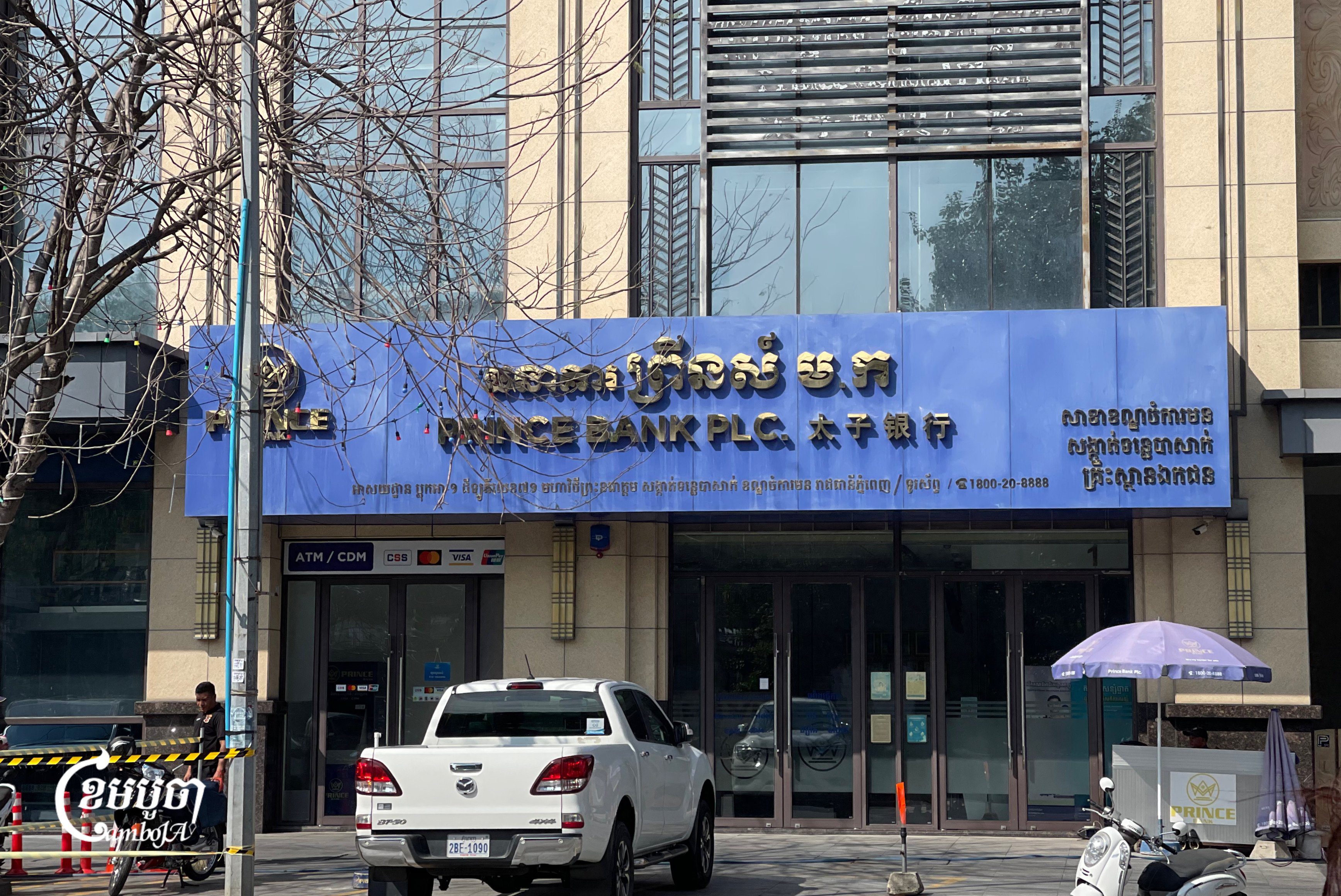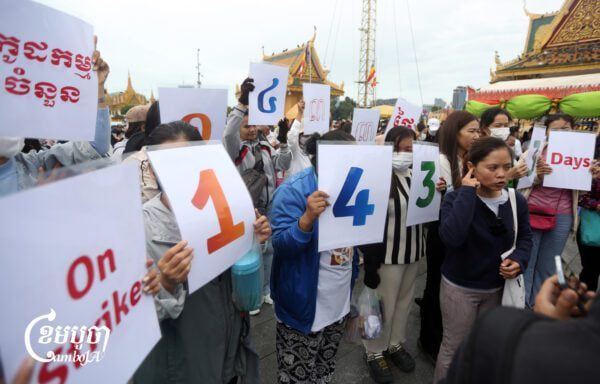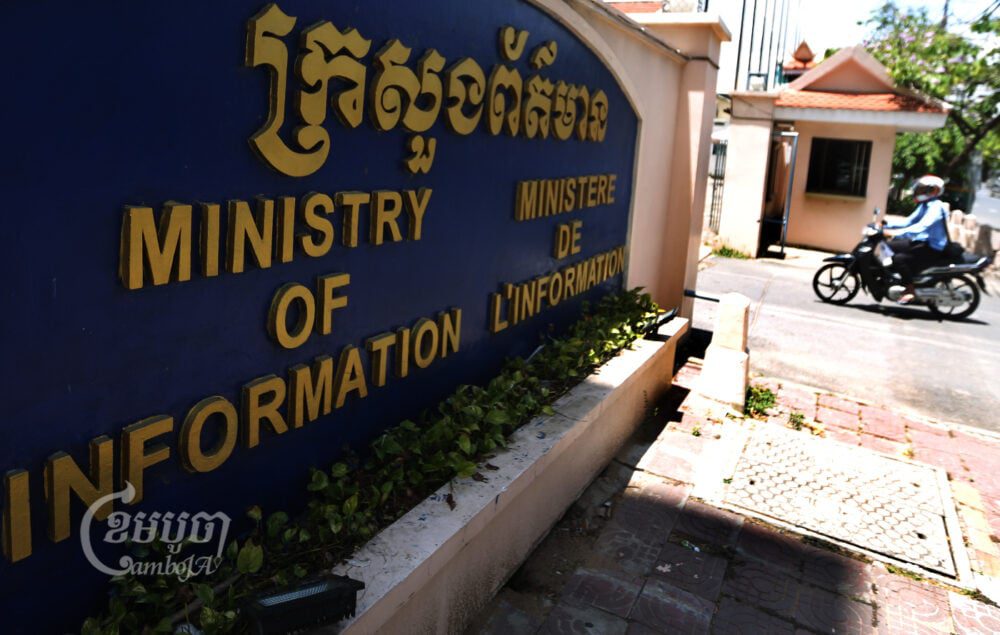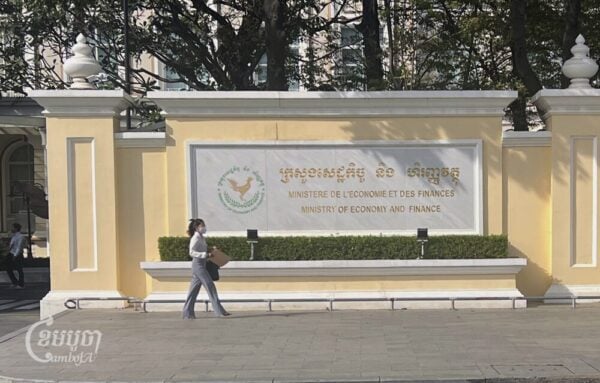Prince Bank, a subsidiary of Prince Holding Group, is exploring a potential delisting strategy in response to U.S. Treasury sanctions, even as customers continue to report difficulties retrieving money transferred to other banks. The bank insists that its operations and financial position remain stable.
On Tuesday, the U.S. and UK blacklisted Prince Holding, a Cambodian conglomerate accused of operating transnational online scam networks allegedly on modern slavery targeting victims abroad. The sanctions cover 146 affiliated entities, cutting them off from U.S. businesses and exposing others to potential penalties for maintaining ties.
A day later, Prince Bank—one of the group’s subsidiaries—announced that its mobile app and website were temporarily offline due to what it described as third-party service interruptions. The outage prompted widespread concern among users who struggled to access their money.
After services were restored, many attempted to transfer their money to other banks, but reported that their money were deducted from Prince Bank accounts without reaching the destination banks. The bank has urged customers to remain patient, assuring them that it remains operational and is working to resolve the issue as soon as possible.
Amid growing concerns over the sanctions, many Prince Bank users have begun transferring their funds to other banks. In response, on Friday Prince Bank announced that its board is conducting a legal review and exploring options for delisting from the sanctions. An economic expert warned that the sanctions could pose significant challenges for the Prince bank.
“The Board will appoint experienced international legal counsel to conduct a comprehensive review of the sanctions,” it stated. “We have instructed Management to engage with relevant authorities, regulators, and advisors to develop and implement a clear plan for the Bank’s removal from the sanctions lists as swiftly and effectively as possible.”
The board reaffirmed its commitment to the bank’s stability and integrity, highlighting strict compliance with National Bank of Cambodia regulations and oversight of all operations.
In the statement, they also emphasized maintaining independent oversight of operational, strategic, and compliance matters, with senior management keeping the board fully informed to ensure timely decisions, while all key actions undergo rigorous review to comply with Anti-Money Laundering (AML), Counter Financing of Terrorism (CFT), and other prudential standards set by the NBC.
“Prince Bank remains fully operational and financially sound,” it added.
“We remain steadfast in our mission to serve our customers, support Cambodia’s economic growth, and uphold the trust placed in us by the public,” it stated, adding that the Prince customers’ deposits and financial interests remain secure.
Around the same time as the September sanctions, a bill was introduced in the U.S. Congress created an anti-scam task force aimed at dismantling syndicates in Southeast Asia and potentially expanding sanctions, including against the current Chairman of Prince Bank, Honn Sorachna.
Meng, a Prince Bank customer since 2022, said he has been using the bank for savings due to its higher interest rates compared with other banks and had never experienced any issues—until the U.S. sanctions were announced.
Concerned, he attempted to transfer his money to another bank account, but as of now, the money has not been received. He noted that the problem only affected U.S. dollar accounts, while riel accounts continued to operate normally.
“Even my colleagues use it to save money; its interest rate is better than other banks,” he said. “I am worried, because this is what I earned—I don’t want to lose it.”
Prince Bank’s Clever Savings product apparently offers benefits such as a high interest rate of 4.25% per year, free personal accident insurance, and free medical coverage due to accidents, compared to around 2% per year at other banks.
Meng added that he has completed the necessary documentation with the bank regarding his transfer to safeguard his savings, and the bank informed him it would take three days to resolve the issue.
Stephen Higgins, managing partner of Phnom Penh-based Mekong Strategic Capital, told CamboJA News that the sanctions will make it challenging for Prince Bank.
“They may be able to continue operating in riel, but it will be difficult for them to function as a U.S. dollar bank,” he said.
He declined to comment directly on whether local customers should withdraw their funds but said that “keeping money with a bank with a good reputation is safer“.
He also added that the banks seeking to maintain international banking relationships would likely avoid dealing with Prince Bank, particularly for U.S. dollar transactions.
“Any bank here [Cambodia] who wants access to correspondent banking relationships, which are really important to most banks, simply isn’t going to be able to deal with Prince Bank going forward, at least in USD,” he said.
ACLEDA Bank declined to comment when asked whether it had discussed or considered any measures to temporarily restrict or suspend transactions with Prince Bank, while ABA Bank did not respond.
While Prince Bank users faced delays in transferring their funds, Huione Pay e-wallet users rushed to withdraw their money from branches in Phnom Penh and Sihanoukville.
Huione Pay’s parent company, Huione Group, counts Hun To—a cousin of Prime Minister—as a major shareholder. The U.S. recently cut off Huione Group from its financial system alongside Prince Group, after previously identifying the company as high-risk for money laundering. One of its subsidiaries has been described by a crypto compliance group as the largest illicit online marketplace ever.
The National Bank of Cambodia did not respond to CamboJA News’s request for comment on what actions it would take if a registered bank under a parent company was subject to sanctions.











